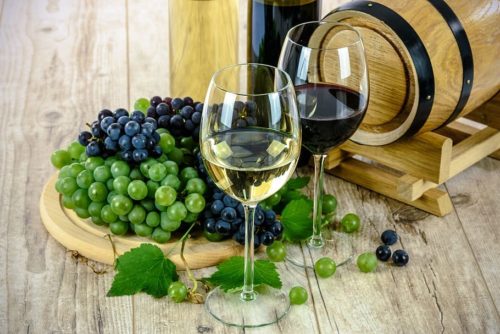
Some wines, like a fine vintage t-shirt or a well-made handbag, improve with age. Knowing which wines are age-worthy is essential so you can collect them and enjoy them at their best.
Age-worthy wines display an extraordinary elegance and complexity with age. Fruity notes fade, and an intoxicating blend of new aromas and flavors emerges.
Age-Worthy Wines
Like at a wine club, most wines are meant for immediate consumption; only a tiny percentage can withstand years in the cellar with grace and success. The key traits to look for are a high acidity (which acts as a natural preservative) and moderate tannin levels from grapes or oak.
Aeration can also significantly improve a wine’s aging potential – exposing it to oxygen allows it to soften its tannic structure and evolve into rich secondary and tertiary flavors. Additionally, wines with low levels of phenolic bitterness tend to age better.
Considering all these factors, the most successful aged wines often come from well-known wine regions and exceptional vintages with proven track records. However, it’s essential to consider personal tastes and sentimental value when selecting a wine for a cellar. A bottle in the basement for decades is like opening a time capsule from the past, transporting you to the sun-kissed vineyards of La Mancha or the rocky slopes of Bordeaux.
Wines That Age Well
Aged wines are not just tasty; they can also be very beneficial for your health. Moderate consumption of old wine has been linked to reduced inflammation and heart disease thanks to its natural antioxidants, such as resveratrol.
Generally, the best wines to age are those that already have some structure, imparted by the tannins created by pressing grape skins, stems, and seeds during maceration. Red wines tend to be the most age-worthy, but whites and roses can also benefit from some time in the cellar.
As wines age, they become more complex and refined aromatically and on the palate. Tannins soften, and tertiary aromas like allspice, licorice, and sandalwood emerge. These characteristics make an aged wine much more enjoyable to drink than its younger, more one-dimensional self. A well-aged Cabernet Sauvignon, Tempranillo, or Madeira bottle can easily last decades.
Cellaring Wines
When a wine reaches its peak, it can become truly magical. The fruit becomes concentrated and jammy while tannic and volatile acidity softens and mellows out. The flavors of a wine can also develop into more complex, nuanced aromas that reflect the vineyard and winemaking artistry of the producer.
Cellaring wines requires patience and a steadfast commitment to the wine cellaring process. Fortunately, it is an investment that will provide long-term pleasure for the collector and connoisseur.
It is essential to remember that not all wines are age-worthy, so it’s best to build a wine cellar with a wide range of wines and producers. That way, you can enjoy the energy of a young wine and then explore tertiary aromas when the wine has aged into its mature state. It is also essential to stock only a cellar with wines you enjoy rather than buying expensive bottles that may not reach their full potential for your palate.
Enjoying Wines
While most wines are bottled for immediate enjoyment, cellaring adds an extra dimension to the wine-drinking experience. It also contributes to a greater understanding of the winemakers’ intentions and the way the wine will evolve.
Cellaring is a personal process; the ideal aging window depends on individual palates. Some wines will improve quickly, while others may take a long time to reach their peak. Ultimately, all wines eventually deteriorate over time, and the exact timeline can vary based on the type of wine and how it is stored.
As the phenolic flavor particles in the wine begin to degrade, they release compounds that can affect its aromas and flavors. This can make the wine taste oxidative or give it an aged quality. This is known as a secondary fermentation. This oxidative process can be exciting, and the outcome is often spectacular. For example, a low-acid Pinot Noir that is typically light and fruity can mature into something remarkable with age.
